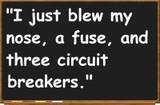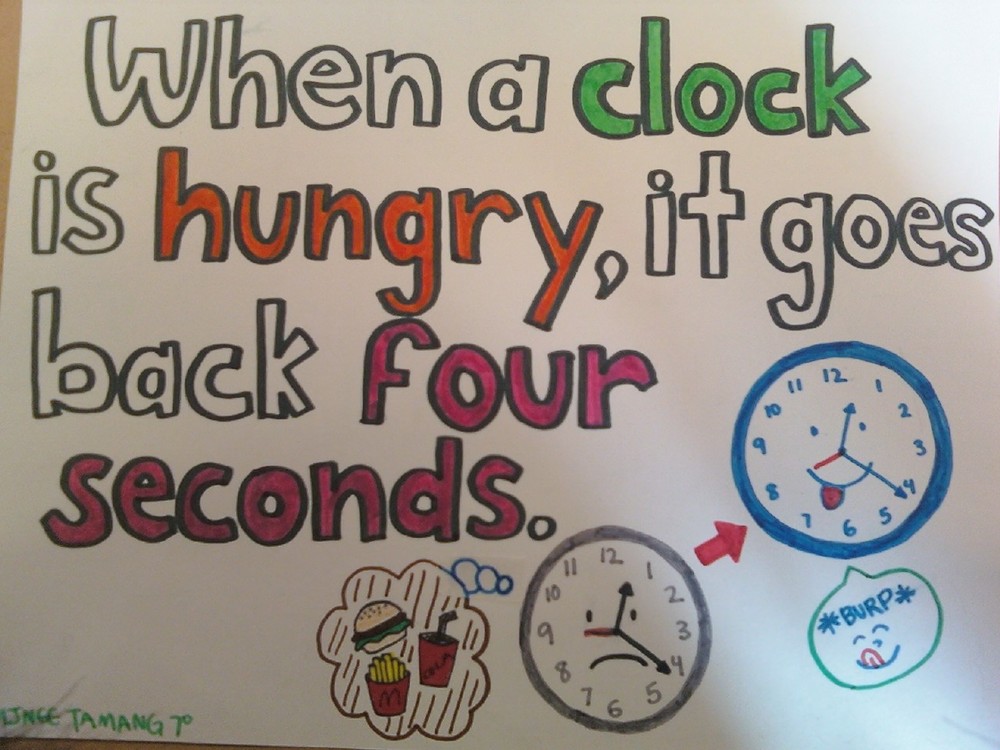Hello everybody!Today I`m going to tell you about periphrasis and its types, and hyperbole.


Periphrasis- The substitution of a descriptive word or phrase for a proper name (a species of circumlocution; or, conversely, the use of a proper name as a shorthand to stand for qualities associated with it.
Examples:
In the TV show "Dinosaurs" the infant dino called his father, "Not-the-Mama."
He's no Fabio to look at; but then, he's no Woody Allen, either.
Said of Aristotle: "The prince of Peripatetics" —Angel Day
Hyperbole- is a figure of speech that uses an exaggerated or extravagant statement to create a strong emotional response. As a figure of speech it is not intended to be taken literally. Hyperbole is frequently used for humour.
- They ran like greased lightning.
- He's got tons of money.
- Her brain is the size of a pea.
- He is older than the hills.
- I will die if she asks me to dance.
- She is as big as an elephant!
- I'm so hungry I could eat a horse.
- I have told you a million times not to lie!
An UNDERSTATEMENT is the opposite of a HYPERBOLE. It is when the speaker or writer makes something sound less important than it really is. They wish to make something that is very important into something normal or unimportant.
Examples:
“Tis only a flesh wound!”
"Cannibalism is frowned upon in most societies." - In 'Charlie and the Chocolate Factory'
http://www.youtube.com/watch?v=8VghA6U3ymo&noredirect=1
Zeugma- is a figure of speech in which two or more parts of a sentence are joined with a single common verb or noun. A zeugma employs both ellipsis, the omission of words which are easily understood, and parallelism, the balance of several words or phrases.
http://www.google.ru/url?sa=t&rct=j&q=zeugma%20what%20is&source=video&cd=1&ved=0CDUQtwIwAA&url=http%3A%2F%2Fgoanimate.com%2Fmovie%2F0y_4UOW2OioY&ei=FIeaUJrLNdH74QSxqoC4AQ&usg=AFQjCNHAFwqfiJGWbggrTk0uO7CxpHmBbg&cad=rjt

- "You held your breath and the door for me."
- He lost his coat and his temper.
- She opened the door and her heart to the orphan.
- "You held your breath and the door for me."
- The addict kicked the habit and then the bucket.
- He milked the situation and the cow.
- She stayed his execution and at the hotel.
- He played for keeps and money
Pun: A word or words, which are formed or sounded alike, but have
different meaning; to have more than one possible meaning. (Using
that pencil is pointless.)
http://www.youtube.com/watch?v=_DNjbbwriSI

- A dog gave birth to puppies near the road and was ticketed for littering.
- In the winter my dog wears his coat, but in the summer he wears his coat and pants.
- A man walks into a psychiatrist’s office wearing only shorts made of plastic wrap. The shrink says, “Well, I can clearly see you’re nuts.”
- Santa’s helpers are subordinate Clauses.
Irony is an instinctively recognized Stylistic Device, the nature of which is not fully studied. This device is also based on the simultaneous realization of two logical meanings – dictionary and contextual ones, but the two meaning stand in opposition to each other. That is, a word with a positive meaning is used to denote something negative and vice versa.
For example: must be delightful to find oneself in a foreign country without a penny in one's pocket.
Irony is generally used to convey:
- Negative meaning or emotion: Favoured country! – they let the paupers go to sleep!
- Irritation and dissatisfaction: What a noble illustration of the tender laws of this.
- Displeasure: Thank you very much for trumping my ace!
http://www.glogster.com/funnyseanyu/ap-english-poster-5-verbal-irony/g-6lb3isgguikt7lm54gc5fa0

